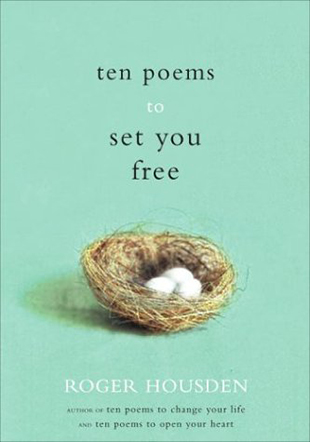"So Much Happiness"
by Naomi Shihab Nye
"It is difficult to know what to do with so much happiness.
With sadness there is something to rub against,
a wound to tend with lotion and cloth.
When the world falls in around you, you have pieces to pick up,
something to hold in your hands, like ticket stubs or change.
"But happiness floats.
It doesn't need you to hold it down.
It doesn't need anything.
Happiness lands on the roof of the next house, singing,
and disappears when it wants to.
You are happy either way.
Even the fact that you once lived in a peaceful tree house
and now live over a quarry of noise and dust
cannot make you unhappy.
Everything has a life of its own,
it too could wake up filled with possibilities
of coffee cake and ripe peaches,
and love even the floor which needs to be swept,
the soiled linens and scratched records. . . .
"Since there is no place large enough
to contain so much happiness,
you shrug, you raise your hands, and it flows out of you
into everything you touch. You are not responsible.
You take no credit, as the night sky takes no credit
for the moon, but continues to hold it, and share it,
and in that way, be known.
[Commentary by Roger Housden]
" 'With sadness there is something to rub against,' writes Naomi Shihab Nye.
"Isn't that the truth! Sadness has a gravity that can weigh down both body and mind to such a degree that to think of anything else -- even to think of looking up -- can become almost inconceivable. Sadness can turn to self-pity and become a lid to seal away our happiness for years. Depression can become addictive, a whole way of life. . . .
"Happiness, on the other hand, just happens, and in its own time and place. It comes and goes as it pleases, and all your personal will can do in response, Nye tells us later in the poem, is simply to shrug, . . . raise your hands . . . take no credit. . . . Happiness is far less tangible than sadness, more difficult to put your finger on, even to give a name to. It floats. We can have no control over it, and in this sense, happiness goes against the grain in Western culture."
